About 60 kms from the Uzbek-Tajik border on the banks of the Syr-Darya river lies Khojand, Tajikistan's second largest city and also one of the oldest in the country. It is said to have been founded by Alexander the Great as his easternmost outpost - Alexandria - Eskhate. Due to its strategic location at the entrance to the Fergana valley, it became a prosperous town and built many palaces, grand mosques and a huge citadel but not much of that grandeur remains today. The Mongols ravaged the city in the early 13th century. But it continues to be a booming town today in what is the wealthiest part of the country.
Our introduction to the people of Tajikistan started in the beautiful home of Amirjon and his family where we had arranged (over email) for a homestay
. Amirjon is 17 and finishing school this year. His parents are well educated, his father runs a candy factory and his mother teaches in the nearby university. The well furnished home is arranged around a courtyard and located in the quiet part of town about 25 minutes walk from the center. Amirjon is only one in his family who speaks some English, so he constantly played translator between us and other family members.
After lunch and a brief rest, we headed out to explore Khojand on foot. Wide roads lead to the center of town where a large statue of the poet Komil Khojandi sits studiously in the middle of Lenina, the main street. The city's oldest remains are the (now restored) earthen walls of the 10th-century citadel near what is considered the site of Alexander's original settlement. We walked past the citadel walls towards the Syr-Darya river where a pavilion has been erected to house statues of the country's heroes and heroines.
A visit to Panchshanbe Bazaar (they claim it is one of the best-stocked markets in Central Asia) and the quiet mosque and medressa just outside the market plaza rounded off our day's exploration. The word Panchshanbe means Thursday (or fifth day counting from Sunday) and the bazaar used to be a Thursday market. On our way back we met a young man who introduced himself as a English translator for the United Nations (he works with UN personnel when they come to oversee elections) and he talked to us a little bit about his city.
As we were leaving Khojand next morning, we got a fleeting glimpse of its 22 meter tall Lenin statue that had been displaced from its original prime spot near the river and relegated to an obscure location in the middle of a field! Lenin's status seems to be relegated to the background in the other countries in Central Asia as well.
First Taste of Tajik Hospitality
Tuesday, September 04, 2012
 Khujand, Tajikistan
Khujand, Tajikistan
Other Entries
-
40Vietnam's Former DMZ
Jul 2145 days prior Khe Sanh, Vietnamphoto_camera20videocam 0comment 1
Khe Sanh, Vietnamphoto_camera20videocam 0comment 1 -
41Laid-back Hoi An
Jul 2343 days prior Hoi An, Vietnamphoto_camera20videocam 0comment 0
Hoi An, Vietnamphoto_camera20videocam 0comment 0 -
42Motorcycle City
Jul 2541 days prior Ho Chi Minh City, Vietnamphoto_camera24videocam 0comment 0
Ho Chi Minh City, Vietnamphoto_camera24videocam 0comment 0 -
43Mekong Delta
Jul 2640 days prior Vĩnh Long, Vietnamphoto_camera19videocam 0comment 0
Vĩnh Long, Vietnamphoto_camera19videocam 0comment 0 -
44Goodbye Vietnam!
Jul 2739 days prior Chau Doc, Vietnamphoto_camera10videocam 0comment 0
Chau Doc, Vietnamphoto_camera10videocam 0comment 0 -
45Survivor of a Brutal Social Experiment
Jul 2838 days prior Phnom Penh, Cambodiaphoto_camera23videocam 0comment 2
Phnom Penh, Cambodiaphoto_camera23videocam 0comment 2 -
46Angkor Kingdom
Jul 3135 days prior Siem Reap, Cambodiaphoto_camera55videocam 0comment 4
Siem Reap, Cambodiaphoto_camera55videocam 0comment 4 -
47No Longer The Capital Of Burma
Aug 0233 days prior Yangon (Rangoon), Myanmarphoto_camera17videocam 0comment 2
Yangon (Rangoon), Myanmarphoto_camera17videocam 0comment 2 -
48A Memorable Sunset
Aug 0431 days prior Bagan, Myanmarphoto_camera36videocam 0comment 1
Bagan, Myanmarphoto_camera36videocam 0comment 1 -
49A Sport Of Alms
Aug 0629 days prior Mandalay, Myanmarphoto_camera17videocam 0comment 2
Mandalay, Myanmarphoto_camera17videocam 0comment 2 -
50Inle Lake
Aug 0827 days prior Nyaungshwe, Myanmarphoto_camera14videocam 0comment 1
Nyaungshwe, Myanmarphoto_camera14videocam 0comment 1 -
51Myanmar Musings
Aug 1025 days prior Yangon (Rangoon), Myanmarphoto_camera3videocam 0comment 0
Yangon (Rangoon), Myanmarphoto_camera3videocam 0comment 0 -
52On Hiatus
Aug 1124 days prior Madurai, Indiaphoto_camera0videocam 0comment 2
Madurai, Indiaphoto_camera0videocam 0comment 2 -
53Monsoon and Mangoes
Aug 2411 days prior Mumbai (Bombay), Indiaphoto_camera0videocam 0comment 4
Mumbai (Bombay), Indiaphoto_camera0videocam 0comment 4 -
54Visa Treasure Hunt
Aug 314 days prior Delhi, Indiaphoto_camera5videocam 0comment 2
Delhi, Indiaphoto_camera5videocam 0comment 2 -
55Into A New Region
Sep 031 day prior Tashkent, Uzbekistanphoto_camera20videocam 0comment 2
Tashkent, Uzbekistanphoto_camera20videocam 0comment 2 -
56Crossing Into Tajikistan
Sep 04earlier that day Bŭston, Tajikistanphoto_camera9videocam 0comment 2
Bŭston, Tajikistanphoto_camera9videocam 0comment 2 -
57First Taste of Tajik Hospitality
Sep 04 Khujand, Tajikistanphoto_camera14videocam 0comment 0
Khujand, Tajikistanphoto_camera14videocam 0comment 0 -
58Over Shakhristan Pass
Sep 051 day later Panjakent, Tajikistanphoto_camera11videocam 0comment 2
Panjakent, Tajikistanphoto_camera11videocam 0comment 2 -
59Eleven in a Jeep
Sep 062 days later Panjakent, Tajikistanphoto_camera8videocam 0comment 2
Panjakent, Tajikistanphoto_camera8videocam 0comment 2 -
60Fan Mountains and Marguzor Lakes
Sep 073 days later Marguzor, Tajikistanphoto_camera16videocam 0comment 2
Marguzor, Tajikistanphoto_camera16videocam 0comment 2 -
61From Remote Mountain Village to Capital City
Sep 084 days later Dushanbe, Tajikistanphoto_camera9videocam 0comment 2
Dushanbe, Tajikistanphoto_camera9videocam 0comment 2 -
62Independence Day at the Capital
Sep 095 days later Dushanbe, Tajikistanphoto_camera10videocam 0comment 2
Dushanbe, Tajikistanphoto_camera10videocam 0comment 2 -
63Crossing a Remote Border into Kyrgyzstan
Sep 117 days later Jirgatol, Tajikistanphoto_camera18videocam 0comment 2
Jirgatol, Tajikistanphoto_camera18videocam 0comment 2 -
64Onward from the Kyrgyz border
Sep 128 days later Osh, Kyrgyzstanphoto_camera22videocam 0comment 2
Osh, Kyrgyzstanphoto_camera22videocam 0comment 2 -
65Kyrgyzstan's Second Largest City
Sep 139 days later Osh, Kyrgyzstanphoto_camera9videocam 0comment 2
Osh, Kyrgyzstanphoto_camera9videocam 0comment 2 -
66How could you not go to a place called Arslanbob ?
Sep 1511 days later Arslanbob, Kyrgyzstanphoto_camera15videocam 0comment 1
Arslanbob, Kyrgyzstanphoto_camera15videocam 0comment 1 -
67The Long Road to Bishkek
Sep 1814 days later Bishkek, Kyrgyzstanphoto_camera14videocam 0comment 3
Bishkek, Kyrgyzstanphoto_camera14videocam 0comment 3 -
68Seven Bulls and a Broken Heart
Sep 2016 days later Karakol, Kyrgyzstanphoto_camera13videocam 0comment 2
Karakol, Kyrgyzstanphoto_camera13videocam 0comment 2 -
69At Song Kul Lake - An Unforgettable Experience
Sep 2218 days later Kochkor, Kyrgyzstanphoto_camera23videocam 0comment 0
Kochkor, Kyrgyzstanphoto_camera23videocam 0comment 0 -
70Back to Bishkek
Sep 2319 days later Bishkek, Kyrgyzstanphoto_camera0videocam 0comment 5
Bishkek, Kyrgyzstanphoto_camera0videocam 0comment 5 -
71Almaty
Sep 2622 days later Almaty, Kazakhstanphoto_camera16videocam 0comment 1
Almaty, Kazakhstanphoto_camera16videocam 0comment 1 -
72Day Trip To Turkistan
Sep 2824 days later Shymkent, Kazakhstanphoto_camera8videocam 0comment 1
Shymkent, Kazakhstanphoto_camera8videocam 0comment 1 -
73The Border Crossing You Dont Want To Repeat
Sep 2925 days later Tashkent, Uzbekistanphoto_camera5videocam 0comment 4
Tashkent, Uzbekistanphoto_camera5videocam 0comment 4 -
74Some History Lessons
Oct 0228 days later Tashkent, Uzbekistanphoto_camera5videocam 0comment 2
Tashkent, Uzbekistanphoto_camera5videocam 0comment 2 -
75From Slave Market to Museum
Oct 0430 days later Khiva, Uzbekistanphoto_camera14videocam 0comment 1
Khiva, Uzbekistanphoto_camera14videocam 0comment 1

 Khujand, Tajikistan
Khujand, Tajikistan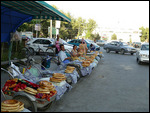








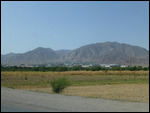
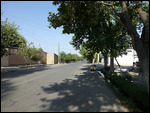
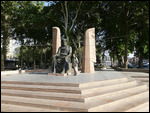
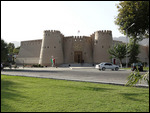
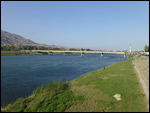
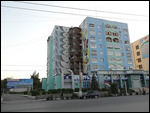
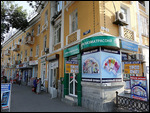
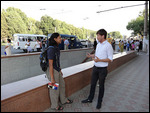
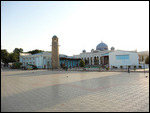
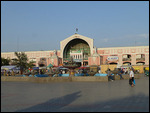
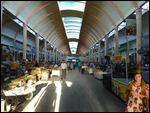
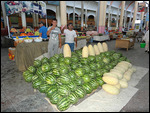
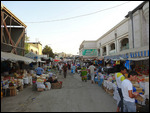
2025-05-22